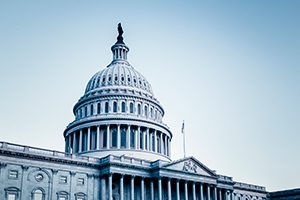USCIS Proposes Fee Rule With Significant Increases for Employers
 On January 4, 2023, U.S. Citizenship and Immigration Services (USCIS) issued a proposed rule to adjust certain immigration and naturalization benefit request fees, which would result in significantly higher fees for employment-based petitioners. USCIS last adjusted fees in 2016, but the most recent fee review conducted by the agency determined that the 2016 fees are insufficient to cover the agency’s operating costs. Unlike other government agencies that receive the majority of their funding through congressional appropriations, USCIS receives approximately 96 percent of its funding from filing fees. USCIS claims that the increased fees will “allow USCIS to more fully recover its operating costs, reestablish and maintain timely case processing, and prevent the accumulation of future case backlogs.”
On January 4, 2023, U.S. Citizenship and Immigration Services (USCIS) issued a proposed rule to adjust certain immigration and naturalization benefit request fees, which would result in significantly higher fees for employment-based petitioners. USCIS last adjusted fees in 2016, but the most recent fee review conducted by the agency determined that the 2016 fees are insufficient to cover the agency’s operating costs. Unlike other government agencies that receive the majority of their funding through congressional appropriations, USCIS receives approximately 96 percent of its funding from filing fees. USCIS claims that the increased fees will “allow USCIS to more fully recover its operating costs, reestablish and maintain timely case processing, and prevent the accumulation of future case backlogs.”
While the proposal is nearly 500 pages long and has significant implications for both employment-based and family-based filings, this blog post focuses on the most significant implications for higher ed employers. Of significance for higher ed employers is a new proposal to fund the Asylum Program with employer petitions fees. Specifically, USCIS “proposes a new Asylum Program Fee of $600 be paid by any employers who file either a Form I-129, Petition for a Non-immigrant Worker, or Form I-140, Immigrant Petition for Alien Worker.”
In addition to the new Asylum Program Fee, USCIS is proposing to increase almost all employment-based and employment-based “adjacent” filing fees. A full fee schedule can be found in Table 1 of the preamble to the proposal and includes the following highlights:
- Fees for I-129 Petitions for H-1B workers rose 70 percent, from $460 to $780;
- Fees for I-129 Petitions for L-1 workers rose 201 percent, from $460 to $1,385;
- Fees for I-129 Petitions for O-1 workers rose 129 percent, from $460 to $1,055;
- I-765 Employment Authorization (EAD) application fees were structured in a way to encourage online applications by providing a discount for online filings. Online applications will be priced at $555, regardless of whether the individual needs their biometrics, whereas paper-based filings will be $650.
- Changes made to the I-539 fees for applications to extend/change non-immigrant status were similarly structured to the I-765 changes. Online applications will be priced at $525, whereas paper-based applications are rising to $620.
- I-485 Adjustment of Status applications uniformly rose to $1,540. For those interested in applying for adjustment of status and a travel document (I-131), those fees will be $2,170 for electronic applications and $2,190 for paper-based applications. Lastly, for those looking to concurrently file for a status adjustment, a travel document and an EAD (I-765), that will cost $2,820.
In addition to the aforementioned changes, USCIS is also proposing to revise the premium processing timeframe interpretation from calendar days to business days. Currently, premium processing allows petitioners to receive an adjudicative action on their case within 15 calendar days. Changing the interpretation to business days would add nearly a week to the existing adjudication time.
As mentioned earlier, the fee proposal is nearly 500 pages long and as such includes numerous changes not covered in this blog post. CUPA-HR will continue to evaluate the proposal, which is open for public feedback through March 6, 2023, and plans to join with other higher education associations to submit comments identifying the proposals impact to the higher education community.


